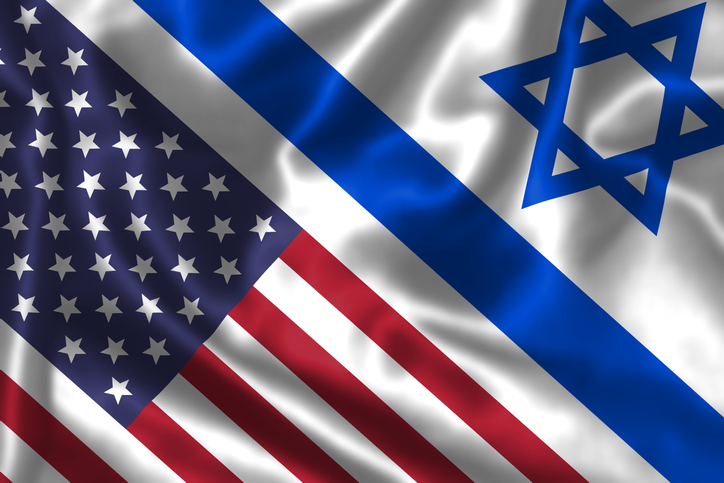Israel should seek an existential defense treaty with the United States of America as part of broader agreements between them and Saudi Arabia, the Institute for National Security Studies (INSS) proposed on Wednesday morning.
A defense treaty between the US and Israel would secure their “special relationship,” and create deterrence against Middle Eastern nuclear actors. INSS suggested that the treaty would only apply to extreme threats in the region, and, for the US, would not include non-existential terrorist threats like Hezbollah and Hamas.
Similarly, Israel would not be obligated to participate in global wars. This would allow Israel the freedom to act against these enemies.
With such a pact, Israel would gain access to advanced American weaponry and technologies to help maintain its qualitative advantage. INSS said that while critics may contend that Israeli operations would be restricted by Washington, in practice it already consults with the US on major military and political decisions.
As part of normalization talks, Riyadh has been requesting a defense pact with Washington in recent talks, said INSS, a “supreme strategic commitment” of the type that the US has avoided making since the signing of a 1960 agreement with Japan. This has created a window of opportunity for Israel according to the think tank; Israel should also request one as part of this framework.
Momentum has been building for Saudi-Israeli normalization in recent months, with Tourism Minister Haim Katz on Tuesday becoming the first high-ranking official to publicly visit the kingdom, and Prime Minister Benjamin Netanyahu said he would seek peace with Riyadh during a Friday United Nations General Assembly address.
Defense pact would advance US interests
INSS has not been the only policy NGO to suggest a defense pact between the US and Israel in recent days. The Jewish Institute for National Security of America (JINSA) said last Tuesday that a defense pact would advance US interests by “cementing a longstanding pivotal military, intelligence, and high-tech relationship.” It presented a draft treaty, an update of its 2018 proposal.
In addition to countering a nuclear Iran, Israeli policy would be brought into step with Washington on China and Russia and create a stronger American “regional security architecture” with Saudi Arabia.
Like INSS, JINSA also proposed a severity threshold that would allow Israel freedom with local threats and only activate for “exceptional circumstances.”
Originally published in Jerusalem Post.

